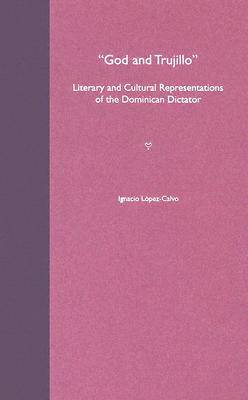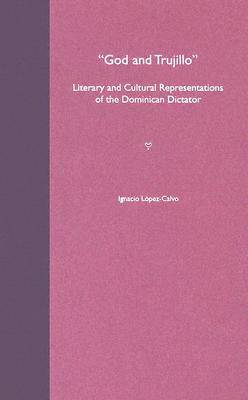
- Retrait gratuit dans votre magasin Club
- 7.000.000 titres dans notre catalogue
- Payer en toute sécurité
- Toujours un magasin près de chez vous
- Retrait gratuit dans votre magasin Club
- 7.000.0000 titres dans notre catalogue
- Payer en toute sécurité
- Toujours un magasin près de chez vous
God and Trujillo
Literary and Cultural Representations of the Dominican Dictator
Ignacio López-Calvo
Livre relié | Anglais
86,95 €
+ 173 points
Description
Rafael Trujillo, dictator of the Dominican Republic from 1930 until his assassination in 1961, is still heavily mythologized among Dominicans to this day. God and Trujillo, the first book-length study of works about the Dominican dictator, seeks to explain how some of those myths were created by analyzing novels and testimonials about Trujillo from Dominican writers to canonical Latin American authors, including Mario Vargas Llosa and Gabriel García Márquez. Trujillo's quasi-mythological figure created a compelling corpus of literary works. Ignacio López-Calvo's study offers a vigorous analysis of 36 narrative texts. He analyzes the representation of the dictator as a mythological figure, his legacy, the role of his doubles, his favorite courtiers and acolytes, and the role of women during the so-called Era of Trujillo.He also traces the evolution and significance of these narratives from a theoretical perspective that falls within the cultural studies framework. The study of the Dominican testimonio and the unveiling of the Taino myth in the "Trujillato narratives" are particularly innovative. In addition, he describes class antagonism and the demythification of the leftist militant in the Trujillato narratives. He also offers an illuminating account of the Dominican left and of the anti-Trujillo resistance as contained in Dominican literature.
Spécifications
Parties prenantes
- Auteur(s) :
- Editeur:
Contenu
- Nombre de pages :
- 224
- Langue:
- Anglais
Caractéristiques
- EAN:
- 9780813028231
- Date de parution :
- 30-06-05
- Format:
- Livre relié
- Format numérique:
- Genaaid
- Dimensions :
- 161 mm x 236 mm
- Poids :
- 449 g

Les avis
Nous publions uniquement les avis qui respectent les conditions requises. Consultez nos conditions pour les avis.






